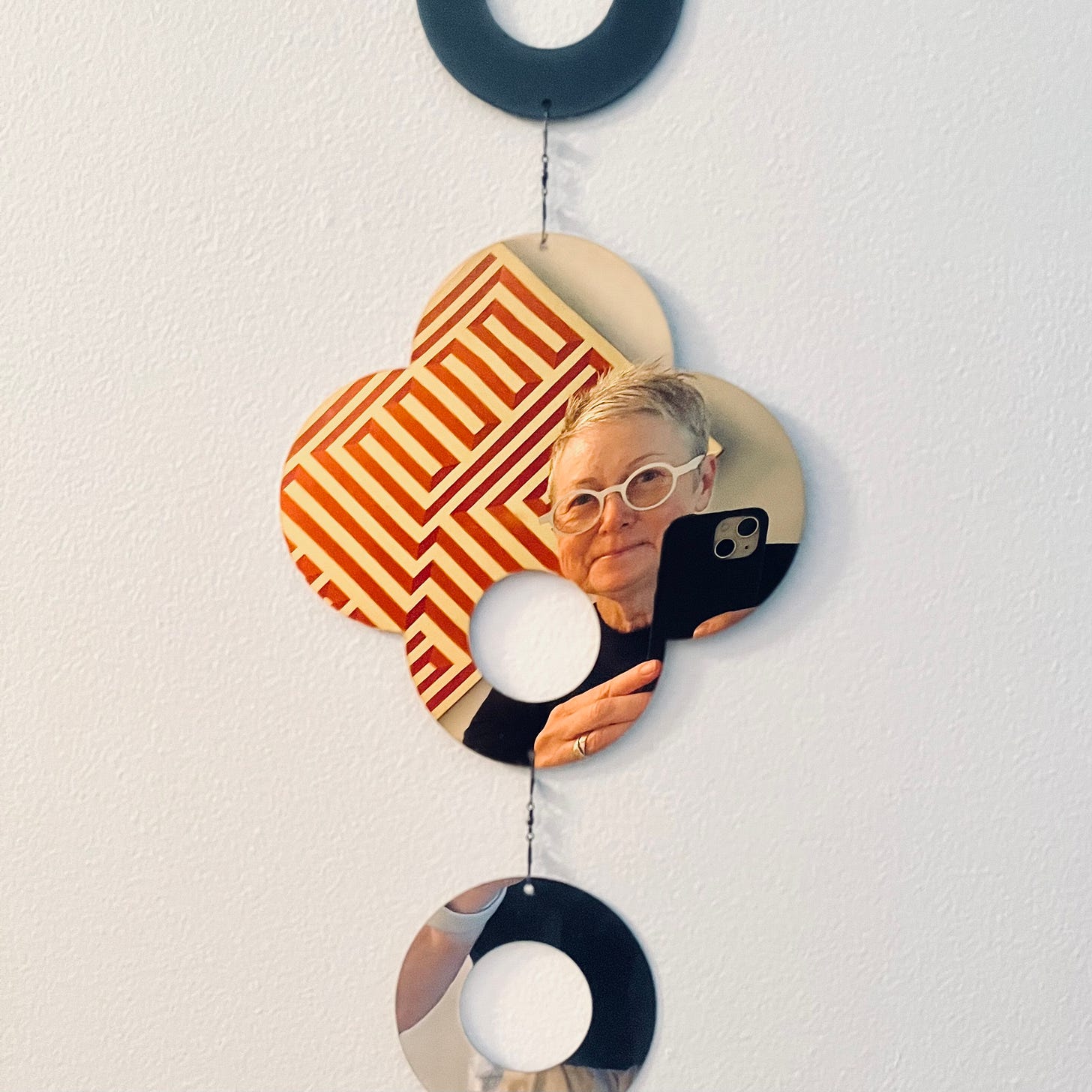Reflection as a Practice within Your Practice or Business:
A Framework for Artists and Creatives to Develop Authentically and Intentionally
Early in my creative career, I was hyper focused on project planning, creative trouble shooting and executing. I rarely paused to reflect. However, as a solo creative practitioner and coach for the past nine years, I’ve come to deeply value reflection as a cherished habit developed through building my practice. In fact, I’ve come to think of it as an essential “practice within my practice.” Reflection is also at the heart of what I support my clients to do.
Why Reflection matters for artists and creatives:
My reflective practice has been foundational to growing both my coaching and writing work. I’ve seen from my own experience and in working with my clients that there are numerous ways artists and creatives can benefit from reflective work. Reflecting on and tracking our progress (even small steps) and what we are learning can help us stay connected and committed to projects, and our practices in general, as we notice a growing sense of accomplishment and gain valuable insights.
Bottom line, a reflective practice:
Creates a structure for becoming more intentional
Helps us build self-accountability and a sense of momentum and progress
Provides a framework for noticing, learning and adapting authentically
Recently, in a wrap up session, a client shared that she had come to see the weekly reflection practice she had experimented with as part of our work as “the fuel” for her creative practice moving forward.
What is a Reflection Practice?
Michelle Lucas’ book, “Creating the Reflection Habit” defines a reflection practice as
“an iterative, open-ended creative process, where we take deliberate conscious time to explore and interrogate our practice in a systematic and systemic way. This enables us to adapt what we do and consider how we might develop our future practice in service or our stakeholders.”
(For artists and creative professionals, stakeholders might include themselves, their audience or clients or specific values that underpin their artistic practice or creative business.)
I love this positioning of reflection as an iterative, open-ended creative process. That’s exactly been my own experience. When I am coaching clients to create reflective practice I invite them to consider how they might approach reflection as a creative practice within their creative practice. I especially love helping them design and evolve reflective practices that feel authentic to them and their creative work and in service of developing their future creative practice and career.
How Artists and Creatives Can Create a Reflection Practice
When clients begin to see the benefits of the simple reflection I structure into our coaching process, they often want more. This can be as simple as journaling thoughts and noticing what choices and actions are in alignment with their core values and in service of their bigger picture goals for themselves and their creative practice or business, keeping a log of work sessions or even visually tracking milestones. For example, a client I worked with last year put this into practice by creating a routine of logging what she had worked on or accomplished at the end of each day instead of focusing on making a new to-do list. This helped her begin to see a sense of progress and momentum that she had trouble seeing before. She felt less overwhelmed and more comfortable with her productivity. Personally, I have a routine of sitting down at the end of my work week (with a cup of tea) to bullet journal my progress and insights in relation to my core priorities (I like to call them my BIG ROCKS - Creativity, Growth, Connection and my sense of Balance in my work and life). You can read more about my weekly reflection practice in this past post - How Artists and Creatives Can Rock Their Staying on Top of Their Priorities. I also have a practice of quarterly and annual reflection. I do a deeper dive check-in on my progress towards specific goals, identify new insights and ideas and any changes in priorities, revise my strategies and plan ahead for the new quarter or year. I approach these deeper reflections as “retreats”. I schedule 60 minutes quarterly and a half day for my annual reflection. I make sure to have treats available to make it a special experience. These are just a few examples. There are many ways to go about creating a reflective practice.
Eight Prompts to Create Your Reflection Practice
I created my reflective practice(s) to suit my personality, how I think things through and what is core to how I want to build my creative practice. It’s important to be intentional in tailoring reflective practices to suit your personal style and meet your needs . Keep in mind that we are constantly growing, changing and adapting as creative professionals, so is our work, so is the world around us. When we approach a reflective practice as “an iterative, open-ended creative process”, it opens the door to change and adapt that practice as our circumstances, priorities and needs change over time. In other words, it can start out one way and evolve. My reflection practices have developed and evolved over time and yours will too! Here’s some prompts and questions to help you experiment with creating a reflection practice that’s authentic to you and your work and supports you to grow and evolve in ways that are meaningful to you as an artist or creative:
Keep reading with a 7-day free trial
Subscribe to Ways To Be A Creative to keep reading this post and get 7 days of free access to the full post archives.





